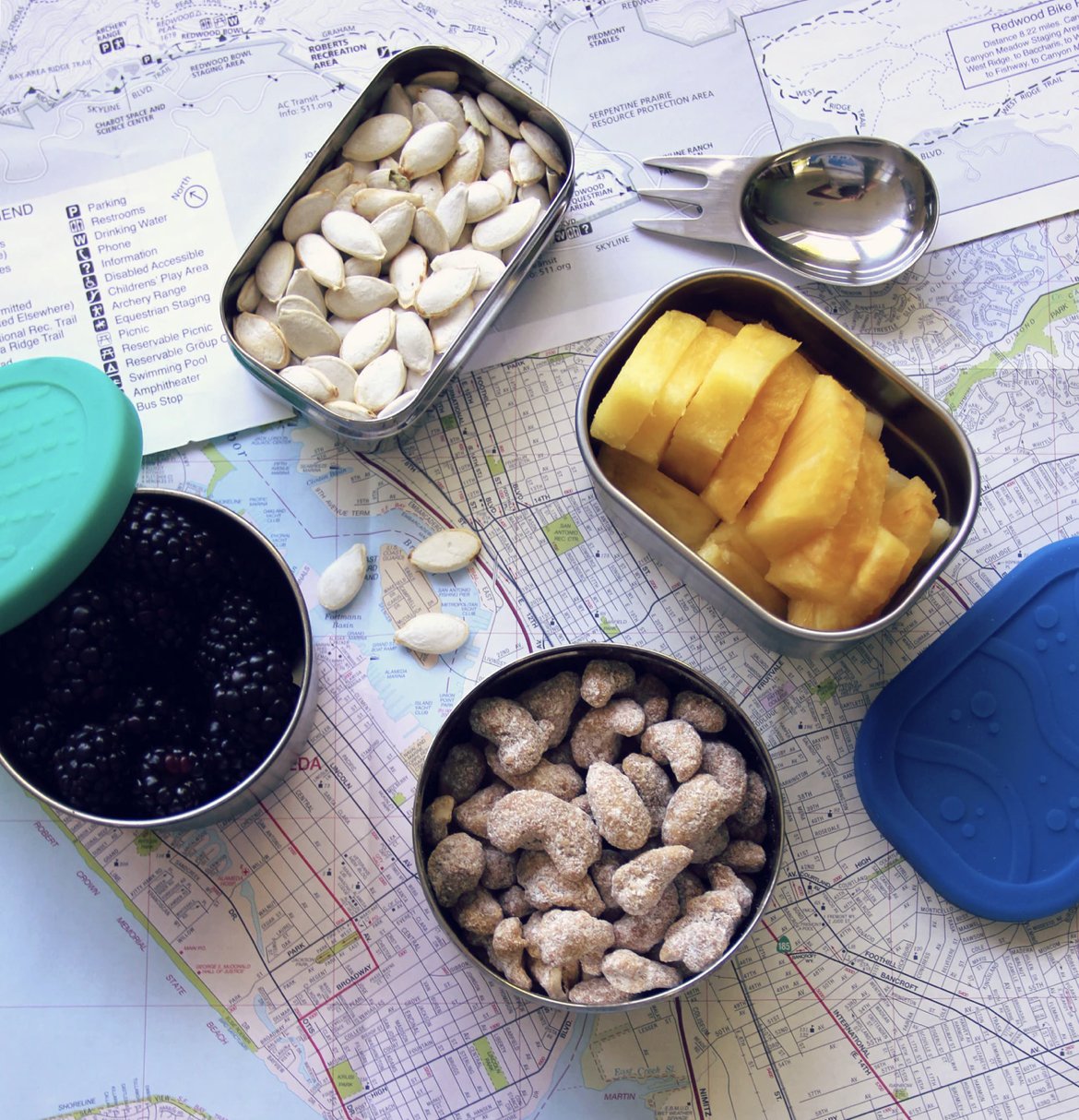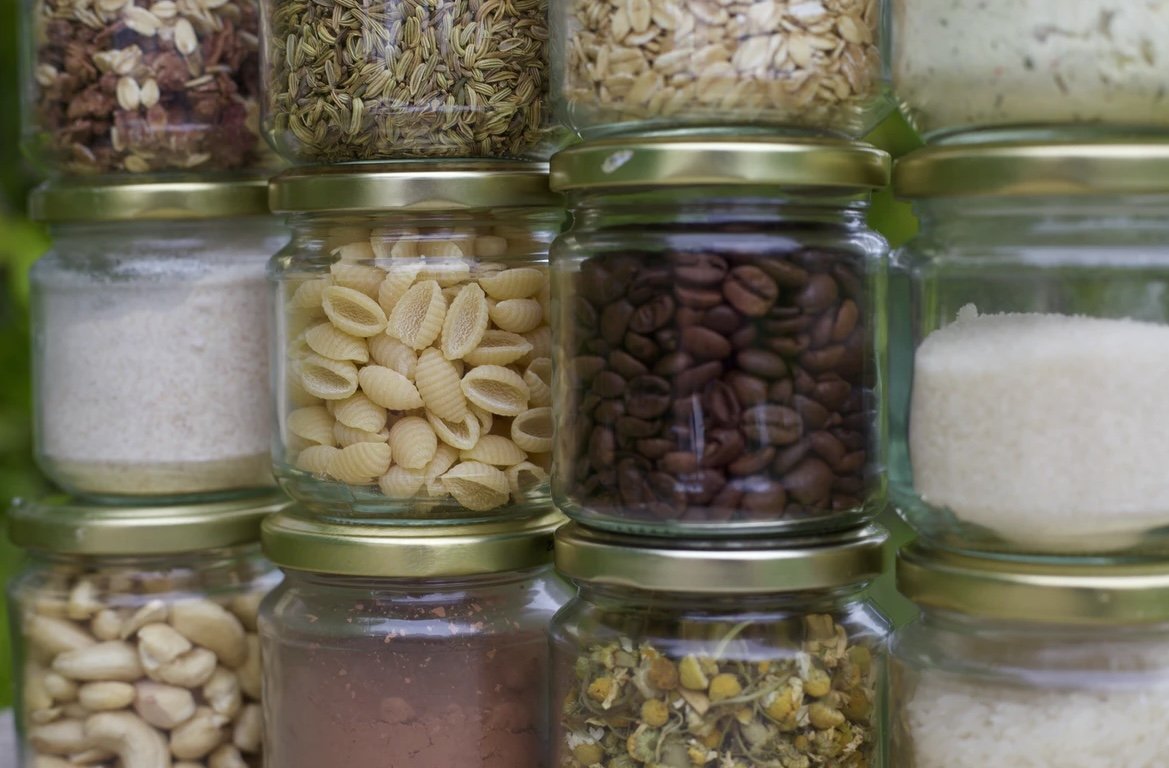7 Ways To Reduce Your Exposure To Endocrine Disruptors
Did you know there are numerous everyday plastic items that are laden with endocrine-disrupting chemicals (or EDCs) including plastic wraps, water bottles, food containers, cookware, pesticides, cosmetics, and even children's toys — YIKES!
But what exactly are these chemicals?
Endocrine-disrupting chemicals are notorious for mimicking, blocking, and interfering with the functions of the endocrine system. These chemicals include BPAs, PFAs, phthalates, phenol, and over 140 other chemicals!
Before we go any further, it's time for a quick science lesson:
The endocrine system comprises glands and organs that are responsible for producing hormones and releasing them into the circulatory system AKA your bloodstream. The pituitary gland, thyroid gland, adrenal gland, pancreas, and many others are all part of the endocrine system. The hormones or 'chemicals' produced by this system play a crucial role in bodily functions such as growth, repair, development, metabolism, sleep cycle, and reproductive processes. Now that we know why the endocrine system is so important, let's shift our attention back to plastic and endocrine disruptors:
Exposure to endocrine-disrupting chemicals is a serious issue — Human sampling has found that EDCs are found in the bodies of almost everyone. Since these disruptors have a similar chemical structure to our endogenous hormones, they can disrupt the normal processes of the endocrine system. Endocrine disruptors are found in diverse forms, all across the world. Be it the plastic wraps that we've been using for our sandwiches or the toys that we've been buying for the kids — toxic chemical additives surround us! Our exposure to multiple endocrine disruptors at the same time only increases the risk of suffering from health problems. Even small amounts of these chemicals can increase, alter and mimic hormone levels in the body and have a substantial impact on bodily functions.
Let's take a look at how these chemicals affect fertility:
During pregnancy, women are extremely sensitive to damage caused by exposure to these chemicals. Exposures of mothers to endocrine disruptors may lead to birth defects, developmental issues, and fetal growth retardation in children. Furthermore, it puts current and future generations at risk. In women of reproductive age, these chemicals can affect fertility by reducing the reproductive lifespan and rushing the onset of menopause.
Polycystic Ovary Syndrome is an endocrine and metabolic disorder that affects a large percentage of women of reproductive age. Women with PCOS must be extremely cautious of their exposure to endocrine-disrupting chemicals.
Did you know:
In a research study, it was found that those with PCOS had higher levels of BPA (a kind of endocrine disruptor chemical) compared to controls. They also found a positive link between androgens (male sex hormones that are also found in females) and BPA. This suggests that endocrine disruptors might play a significant role in the pathophysiology of PCOS. Another study found it possible that the exposure to particular chemicals could worsen/hasten the course of the condition and alter the neuroendocrine, hormonal, reproductive and metabolic signaling pathways. Specific chemicals found in the environment (such as BPA) disrupt the natural metabolic activity of the body, making it more susceptible to obesity. BPA also makes individuals more prone to insulin resistance by suppressing the release of a hormone (adiponectin) that protects us against it. A study has also found it to be significantly associated with testosterone and androstenedione.
So, what can we do about it?
With the amount of plastic we're surrounded by (it's literally everywhere!), it is impossible to entirely eliminate our exposure to these chemicals. BUT what we can do is reduce/diminish our use of plastic and therefore, lower our exposure to endocrine-disrupting chemicals. PCOS women, those who are trying to conceive, and pregnant women are particularly at risk and should be mindful of reducing their exposure.
Here are 7 changes that you can make today:
Avoid storing food in plastic containers and/or heating these containers as these chemicals could leach out into your food. Look out for BPA-free containers or glass jars and storage containers.
Replace plastic water bottles with glass ones. If you're feeling fancy, you might even want to try handcrafted bamboo or terracotta water bottles.
Toss out those plastic wraps and switch to all-natural, reusable beeswax wraps. These are sustainable, environmentally friendly, compostable, and zero waste — Jackpot!
Similarly, say no to plastic sandwich bags and switch to cotton bags or just use a food-grade stainless steel lunchbox.
Avoid consuming produce that has been exposed to pesticides. These pesticides could leave a residue in your food. Instead, choose organic, farm-fresh produce. The best way to do this is by contacting your local farmers or visiting the farmer's market in your locality.
Choose wooden alphabet blocks, eco-friendly modeling clay, recycled cardboard puzzles, or sustainable skipping ropes (with wooden handles and a cotton rope).
Switch to toxic chemical-free, paraben-free clean makeup brands and use plant-based body mists, deodorants or fragrance oils instead of perfumes that have phthalates and parabens.
Not only will these changes help reduce your exposure to harmful chemicals but they're also good for the Planet. Make sure to implement these right away!
Written by: Samia Arshan, In-house Content Writer, PCOS Club India.
Follow us on Instagram @PCOSClubIndia or visit pcosclubindia.com to join India's largest PCOS-centric community and find out how to manage your PCOS symptoms holistically and naturally.



